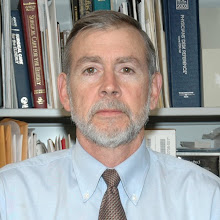As I understand it, coca growers here are protesting the government's 15-pound limit on how much licensed coca growers can sell. They also want the resignation of two apparently over-zealous government ministers. Of course, I don't understand why each side feels as it does. I've only been in this area for a few months, and in my own selfish way I just want to get back to the UAC-Carmen Pampa so I can feel responsible as I try to fulfill the expectations about my being there:
- the children that wait for the library to open
- UAC-CP students that show up for the 6:30 am liturgy of the hours service before plunging into another busy day
- setting up for Mass
- Pastoral,
- English Club
- the volunteer teaching program for English.
How do we know we can't get back? We tried, and finding that out was an adventure in confronting our own naivete. After returning to La Paz from a retreat with our fellow Franciscan lay missioners in Cochabamba (Catherine, Clare, and Nora, as well as our mentor, Hermano Ignacio) we heard that the blockade was indeed in place, shutting down all traffic on the only road into and out of the north Yungas. Before leaving, we had heard that a blockade probably would be set up before our return, but following the information we liked most to hear, we thought that we might just be allowed to walk across the blockade and be on our way. We hear that does happen sometimes. So, we went on to our retreat. When we returned we took a cab to the site in La Paz where the minibuses depart for the north Yungas. There we discovered that the minibus companies were all closed. However, while we were there we met two students from UAC who were also trying to return. The four of us agreed to risk crossing the blockade. As we understood it, the taxi would drive us right up to the blockade. We would get out of the taxi, explain to the nice people holding the threatening signs and marching back and forth around and beside the big piles of rotting papaya and other fruit unable to get to market, that we were all about social justice and higher education, so would they kindly step aside so we wouldn't be late for class. We would then lift our backpacks and other bags and saunter the scant two kilometers over to the other side of the blockade and pick up a ride in the minibus that was sure to be waiting to drive us to the next stop, Coroico, or probably even right up to our apartment door. For all I knew, maybe some of the nice people would put down their signs so they could help us carry our bags and so we could get back in time for a little class prep. Ah, truly, this was the best of all possible worlds!1 (Did I mention that rain clouds were rolling in?)
Fortunately, we were turned back by the police before we made it out of La Paz. We were later informed that the people on these blockades sometimes turn violent. We also learned that there were actually two blockades, one at Unduavi and another about 65 kilometers away at the Santa Barbara bridge. Had we been allowed to walk unharmed across the first blockade, our hike to the second would have been a few kilometers longer than expected, and in weather for which we were unequipped. Our guardian angel must've been splitting her sides at how hard we had been working to hurt ourselves. We felt fortunate to be able to reflect on these things from the comfort and security of a room at the Maryknoll House. Once again in our lives, we were learning that we couldn't just choose to believe what we wanted to hear. And we were learning about the complexity of social change in this country (what about the various reasons why each person on the blockades was there), why some things that are possible, like increasing education in the Yungas, may proceed very slowly.
__________
1Doctor Pangloss, true to his phenomenal longevity in Voltare's Candide, is alive and well in Bolivia.
